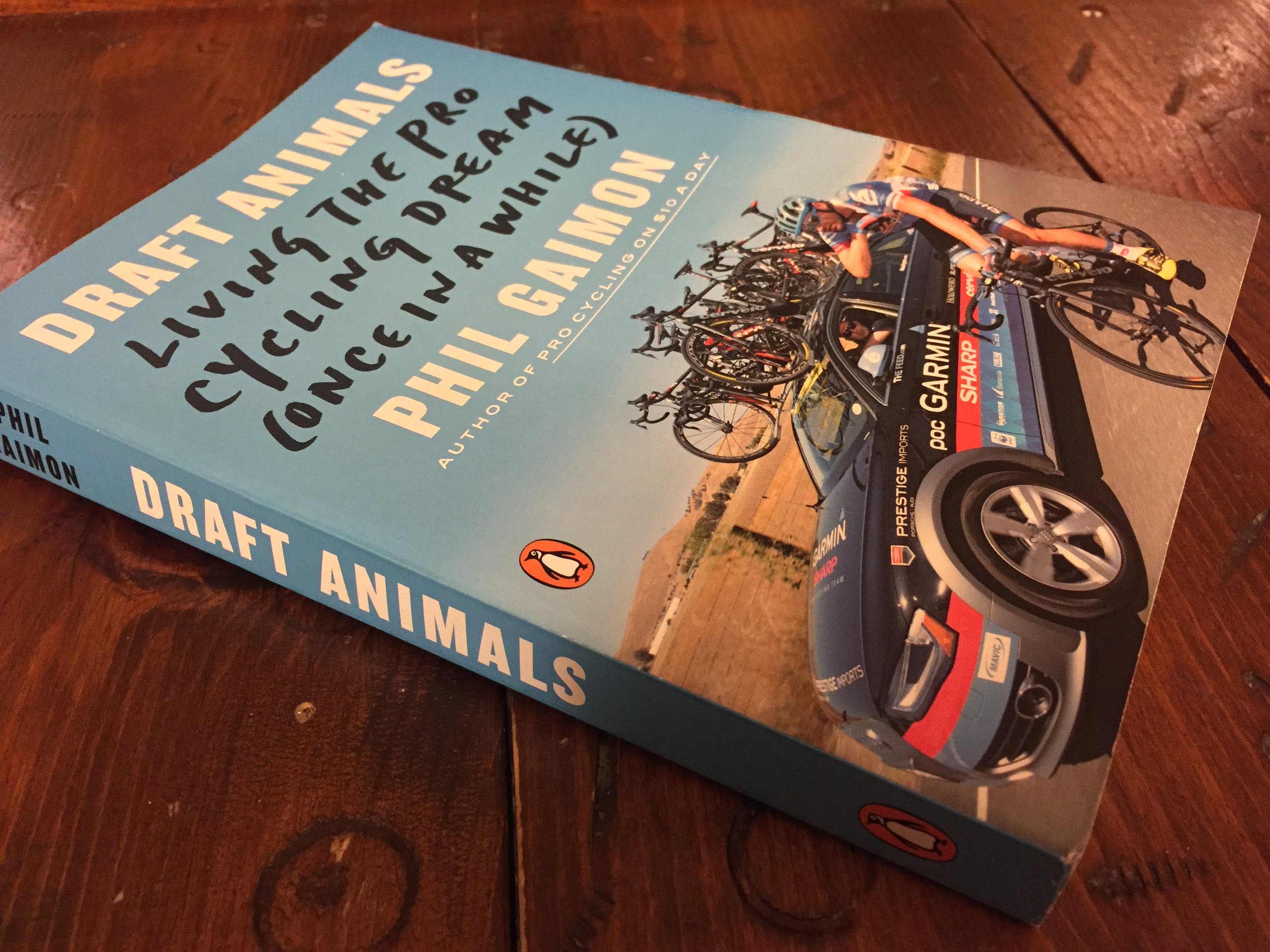Review: Draft Animals – Living the Pro Cycling Dream (Once in a While)
(2017) About halfway through Phil Gaimon’s professional cycling memoir, Living the Pro Cycling Dream (Once in a While), published by Penguin Books (real deal), he makes mention of something that put it all together. Gaimon, an English major in college took ownership of being a fan of Henry David Thoreau’s Walden, an experiment in solitude. From there on out, his approach to the professional cycling life made sense. Once one closes the book for good on page 320, the reader shouldn’t be blamed for admiring Gaimon’s outlook on being a professional athlete.
All too often in American culture, we put professional athletes on a pedestal. There are people – seriously or jokingly – who are quoted saying, “If I tried just a little bit harder as a teenager, I’d probably be pro right now.” We are taught to admire athletes as if they have the easy life. Participate in the sport of your upbringing, get paid to play, be happy forever. Even those who have tumbled out of the arena and into retirement still adorn advertisements making us feel perceive every athlete living the good life even when the equipment is put away for good. We never make a second guess as to what we don’t see.
Throughout his book Phil Gaimon takes the professional cycling culture to task. Things aren’t all bowls of cherries as they may say. His candid tales reveal a behind-the-scenes look at the Euro-centric sport and its shady dealings. Expect to laugh and be frustrated simultaneously as he pulls no punches in both the European theater of cycling as well as the American theater of cycling.
You have died of dysentery.
Gaimon lays multiple cyclists to waste, particularly in the American cycling realm. You see Phil Gaimon had the luxury of straddling two major phases of professional cycling. He grew up watching the Discovery Channel team propel American cycling into the spotlight only to arrive in the professional peloton as the fallout had nearly abated. He rode against guys who raced in the era of the ‘90s and early 2000s. He also raced against the new crop of American cyclists who were distanced from those old guards.
Changing the tone, this book is hilarious. Gaimon’s tongue-in-cheek observations will make the reader laugh multiple times. He is that personality on the team who reminds everyone not to take him or herself too seriously despite the extreme importance of the event looming. Had I had him on my hockey team, I probably would have looked to him every couple of minutes. Though it should be recognized that not even his steely preparation could endure professional cycling.
Draft animals, to Phil Gaimon, are the beasts of burden one must purchase to start the nostalgic computer game, Oregon Trail. In an attempt to make it to complete the game, one must set a pace to beat a whole host of issues along the Trail. Should the draft animal not pull its weight, it would simply be discarded and replaced at some point along the Trail. If you get the metaphor, I’m sure it would not fit into our warped belief that professional athletes live the life of grandeur. For that, I am thankful to have read Phil Gaimon’s book.
In a small hut in Massachusetts, Mr. Thoreau, squatting on land lent to him by Ralph Waldo Emerson, set out to live life deliberately amongst the brambles and shorelines of Walden Pond. He spoke of setting out on a journey of exploration hoping to find answers to life’s perplexing troubles of the times while trying to reconnect with nature. What wasn’t mentioned in Thoreau’s book, but was documented by others, was his daily walk twenty minutes away to his mother’s house (so much for living off the land). His reason for taking the long trek: to eat the cookies she made daily. We could all want to live like a professional athlete or like Thoreau, but when it came down to it, we would realize it’s not all glitz and glamour. But to continue to the experiment while sneaking off for the jar of cookies isn’t a bad lateral move. Read this book. It comes through.





